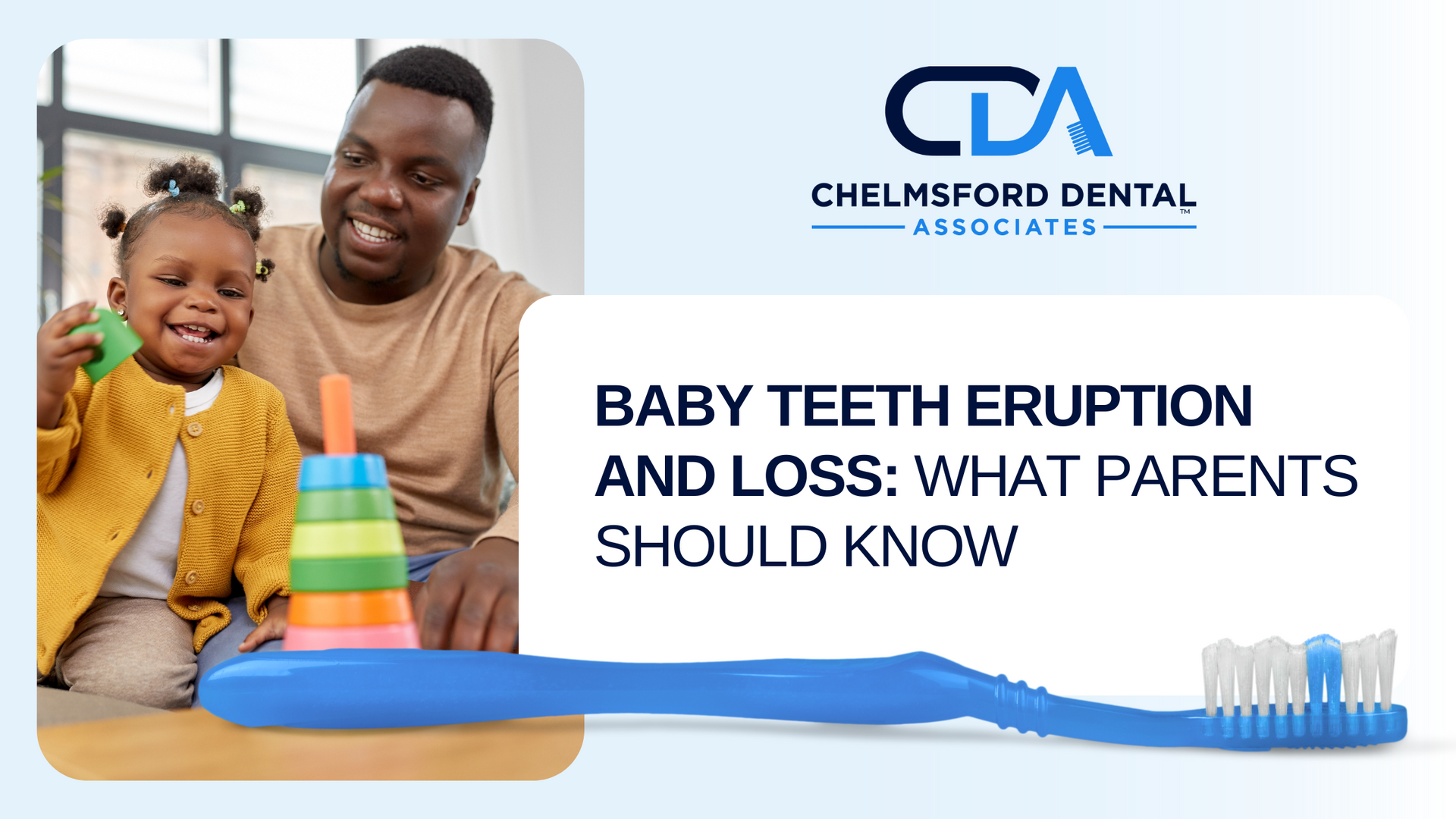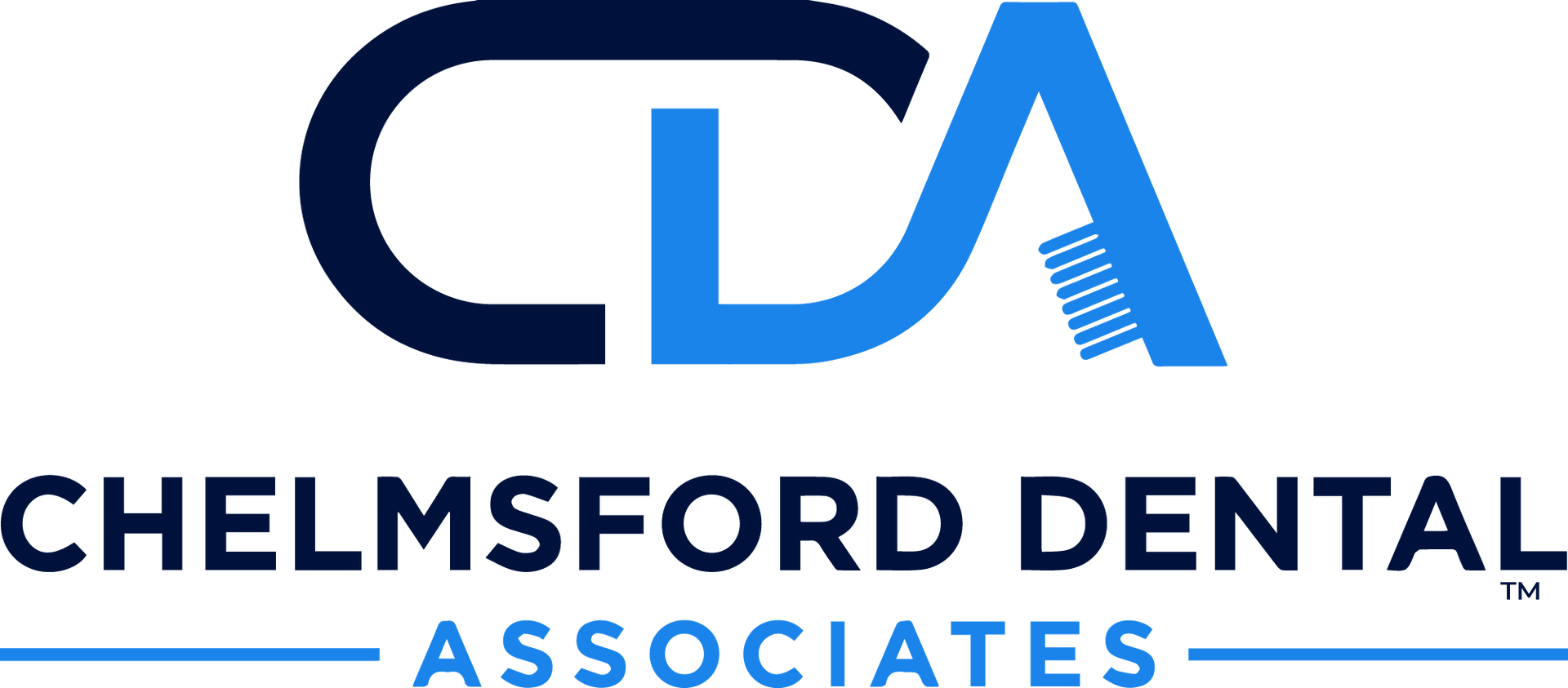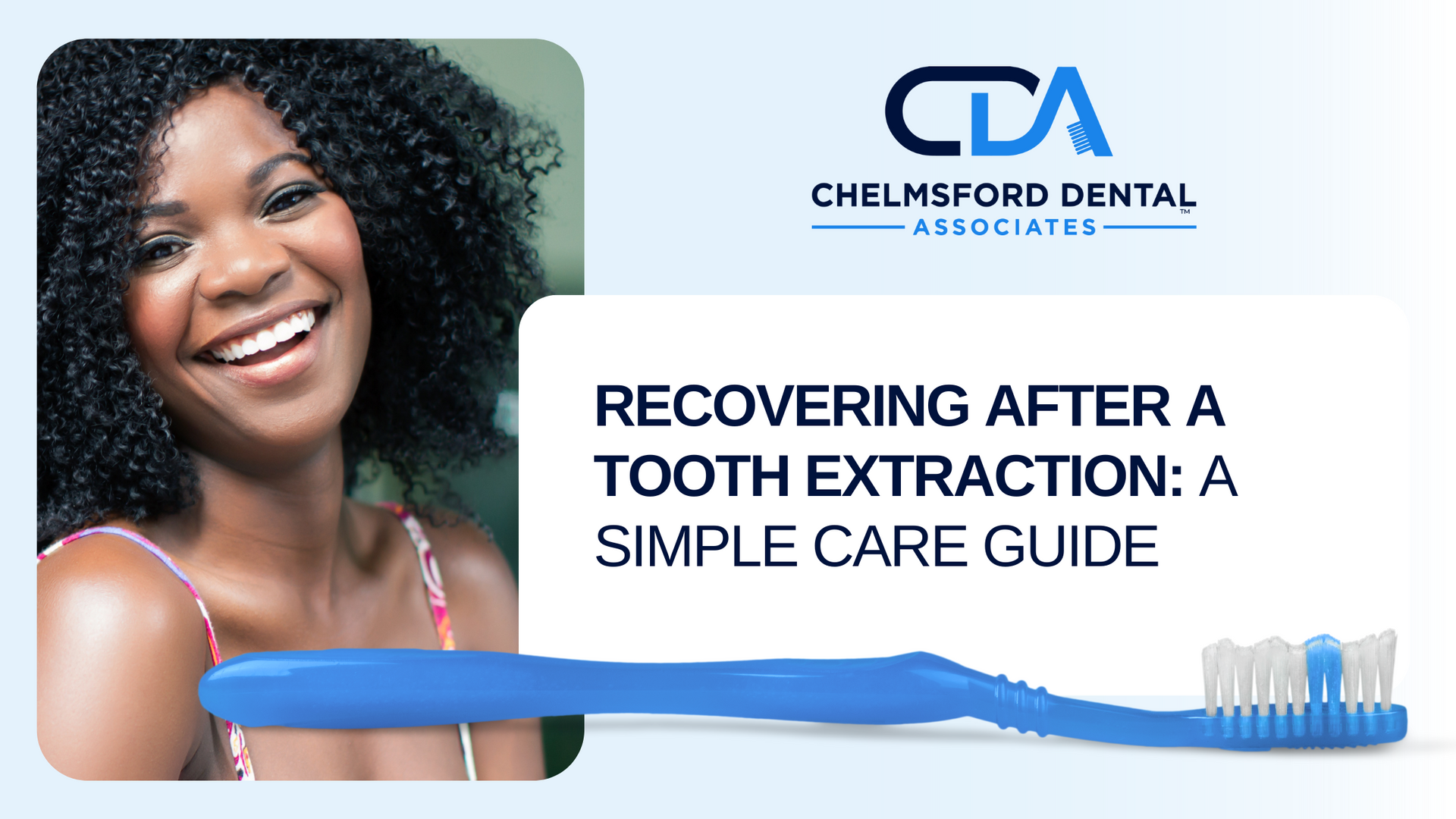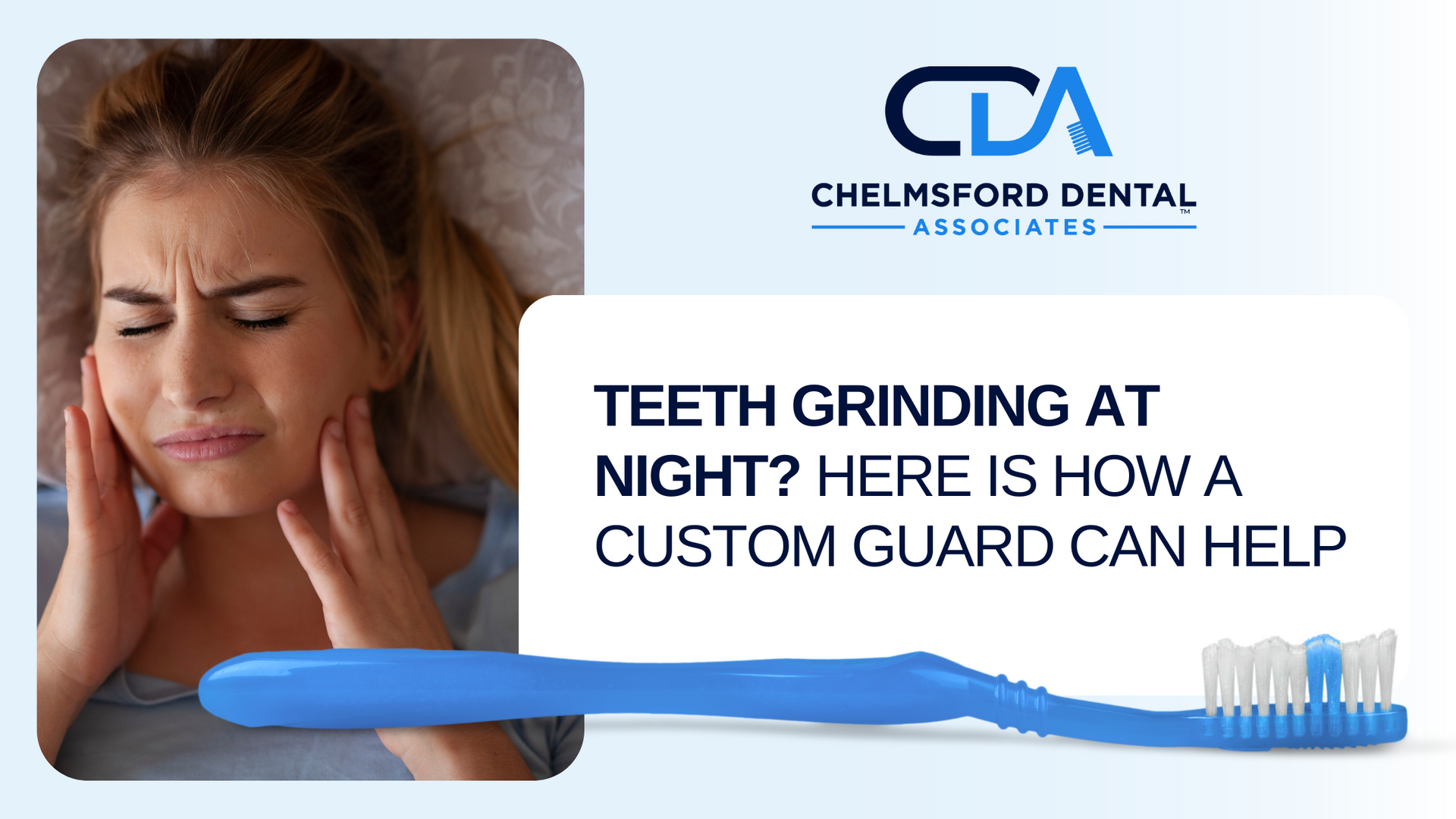Tooth Extractions Done Right: Chelmsford Dental Associates’ Care-First Approach

Source: Dr. Marketing
Tooth extractions may sound intimidating, but they are often necessary to preserve your overall dental health. At Chelmsford Dental Associates, we understand that the decision to remove a tooth is not taken lightly. There are many reasons why tooth extraction might be recommended, and knowing when it is necessary can help you avoid more serious complications down the road. In this post, we will explain the different types of tooth extractions, reasons for extraction, emergency procedures, and what to expect during post-extraction care.
When Should You Consider Tooth Extraction?

Tooth extraction may be necessary for various reasons, ranging from severe decay to infection or overcrowding. Knowing when to consider removing a tooth is important for maintaining your oral health. Some common reasons include:
- Severe Decay: When a tooth is so damaged by decay that it cannot be restored with a filling or crown, extraction is often the best option.
- Infection: An untreated infection in the pulp of a tooth may require extraction to prevent it from spreading to other teeth or the jawbone.
- Overcrowding: Sometimes, orthodontic treatment requires the removal of one or more teeth to make room for the others to align properly.
- Gum Disease: Advanced periodontal disease can weaken the supporting tissues around a tooth, making it necessary to remove the tooth to prevent further damage.
- Impacted Teeth: Wisdom teeth, or third molars, often become impacted, meaning they cannot emerge fully due to lack of space or improper alignment. In such cases, extraction is recommended to prevent pain, infection, or damage to surrounding teeth.
At Chelmsford Dental Associates, we thoroughly assess each patient’s dental health before recommending extraction. Our goal is always to preserve your natural teeth whenever possible, but in some cases, extraction is the best way to protect your overall oral health.
Types of Tooth Extractions
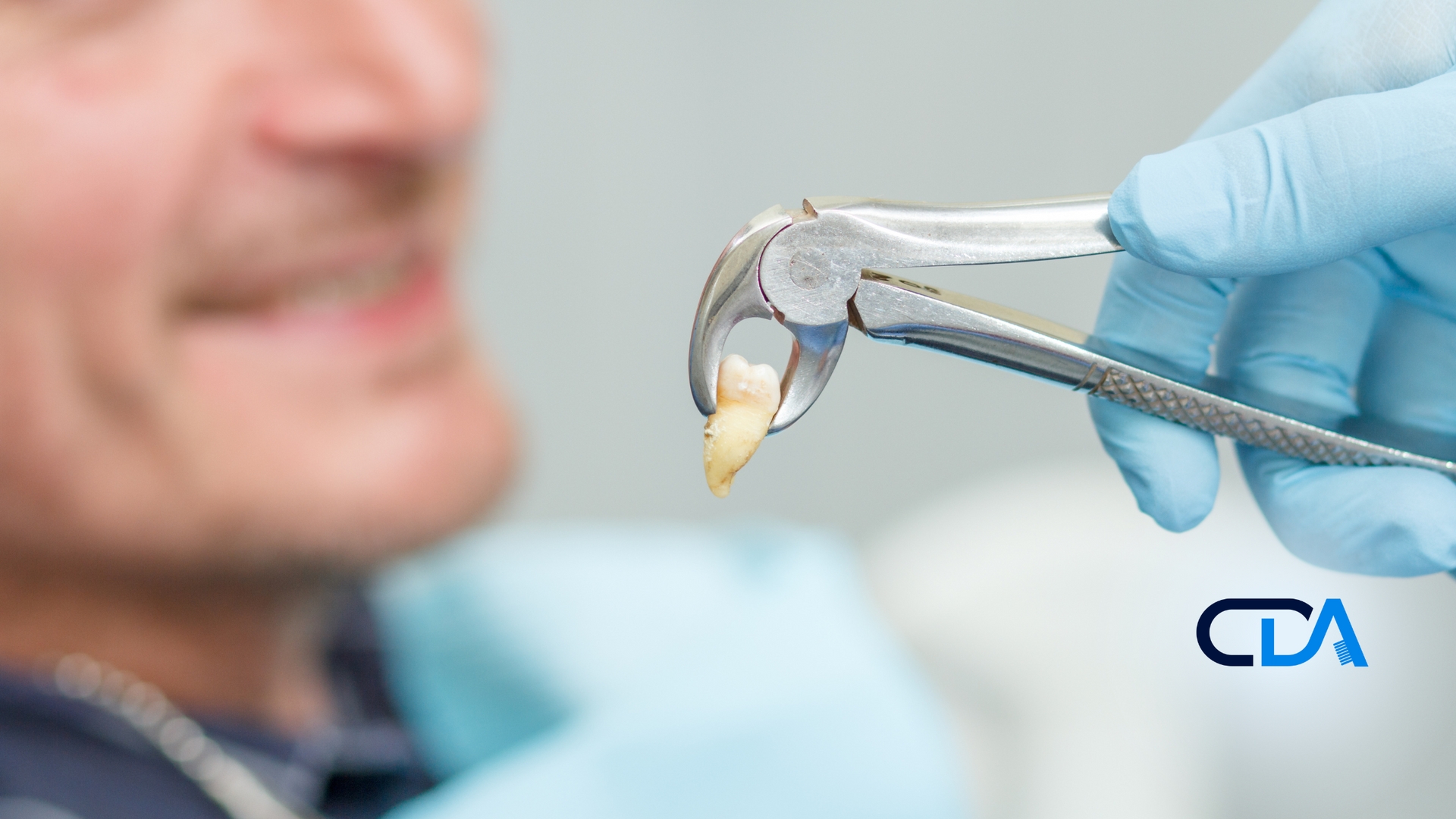
Tooth extractions generally fall into two categories: simple extractions and surgical extractions. The type of extraction you require depends on the condition of the tooth and its position within your mouth.
Simple Extractions
These are performed when the tooth is visible above the gum line and can be removed easily. Simple extractions are typically performed using local anesthesia to numb the area, and the tooth is gently loosened and removed using forceps. This is the most common type of extraction for decayed or damaged teeth.
Surgical Extractions
Surgical extractions are necessary when a tooth is not easily accessible, such as when it has not fully erupted or has broken off at the gum line. This procedure is more complex and may involve making an incision in the gum to remove the tooth. Surgical extractions are often required for impacted wisdom teeth or severely damaged teeth.
At Chelmsford Dental Associates, in Massachusetts we perform both simple and surgical extractions using the latest techniques to ensure patient comfort and successful outcomes.
Emergency Tooth Extractions: When Time Is of the Essence
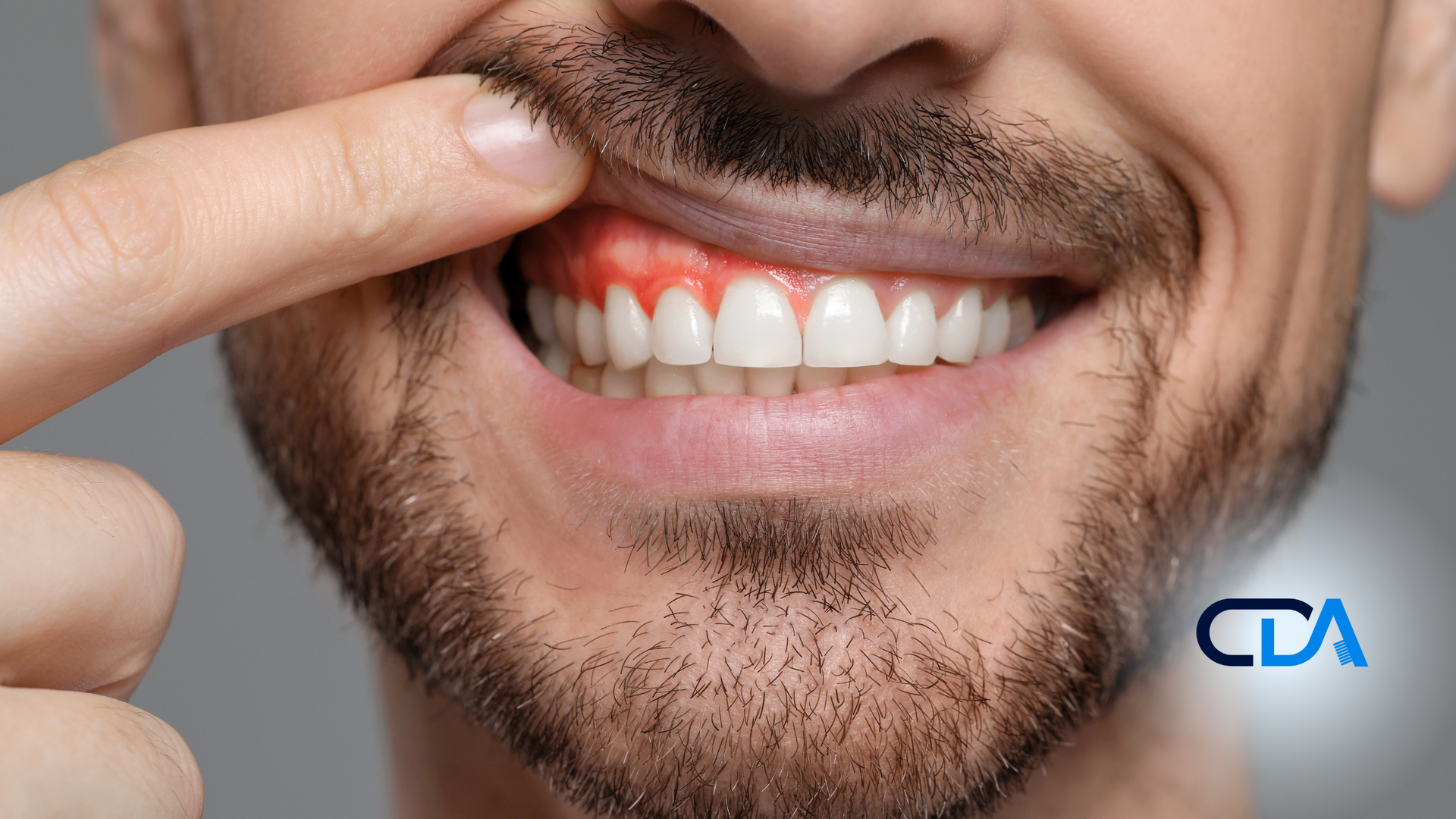
In some cases, tooth extractions are needed on an emergency basis. These situations can arise suddenly and require prompt attention to prevent further complications. Common scenarios that may require an emergency extraction include:
- Severe Tooth Pain: When a tooth is causing intense pain that cannot be managed with other treatments, emergency extraction may be necessary to provide relief.
- Abscessed Tooth: An abscess is a painful infection that can spread quickly if not treated. In some cases, extraction is the best option to prevent the infection from spreading to other areas of the body.
- Trauma: Teeth that are broken or damaged due to injury may need to be extracted if they cannot be repaired.
At Chelmsford Dental Associates, we offer emergency tooth extraction services to patients in Massachusetts. We understand the urgency of these situations and strive to provide immediate care when a tooth extraction is needed. Our team will ensure you receive prompt, effective treatment to alleviate pain and prevent further dental issues.
The Tooth Extraction Procedure: What to Expect

At Chelmsford Dental Associates, we prioritize patient comfort during every tooth extraction procedure. Here is what you can expect:
- Initial Examination: During your appointment, we will thoroughly examine the tooth in question and take X-rays to assess its condition and position. This helps us determine the best approach for removal.
- Anesthesia: Before beginning the extraction, we will administer local anesthesia to numb the area around the tooth. For surgical extractions or for patients with anxiety, sedation options may also be available to ensure a comfortable experience.
- Tooth Removal: For simple extractions, the tooth is gently loosened and removed using forceps. For surgical extractions, a small incision may be made in the gum to access the tooth. Once the tooth is removed, the area is cleaned, and in some cases, stitches are placed to aid healing.
- Post-Extraction Care: After the extraction, we will provide detailed instructions on how to care for the extraction site to promote healing and prevent infection. We will also schedule a follow-up visit to ensure the area is healing properly.
Post-Extraction Care: How to Heal Quickly and Safely
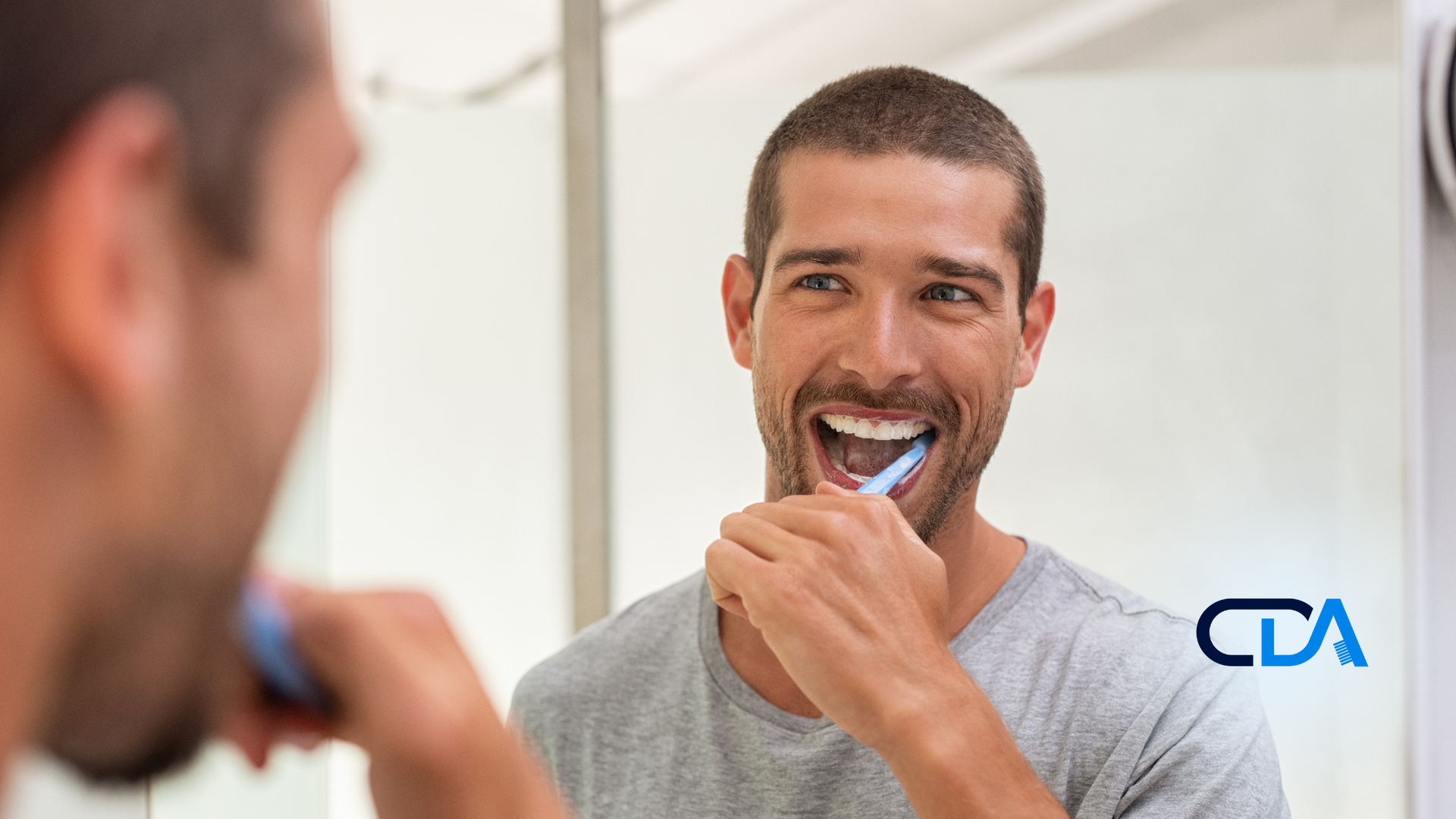
Proper post-extraction care is essential to ensure that the extraction site heals well and to prevent complications such as dry socket, which occurs when the blood clot that forms in the extraction site becomes dislodged. Here are some key steps to follow a tooth extraction:
- Follow All Instructions: After the extraction, we will provide you with specific care instructions. These typically include resting for the first 24 hours, avoiding vigorous rinsing or spitting, and applying an ice pack to reduce swelling.
- Take Medications as Prescribed: If pain medication or antibiotics are prescribed, take them exactly as directed to manage discomfort and prevent infection.
- Eat Soft Foods: Stick to soft foods such as yogurt, mashed potatoes, or applesauce for the first few days after your extraction. Avoid hard, crunchy, or spicy foods that could irritate the extraction site.
- Maintain Oral Hygiene: Continue to brush and floss your teeth as normal but be gentle around the extraction site. You may be advised to rinse your mouth with a saltwater solution to keep the area clean.
- Avoid Smoking or Using Straws: These activities can dislodge the blood clot that forms in the extraction site, leading to dry socket and delayed healing.
At Chelmsford Dental Associates, we provide detailed post-extraction care instructions and are available to answer any questions you may have during the recovery process. If you experience excessive bleeding, severe pain, or signs of infection after your extraction, contact our office immediately for further assistance.
Alternatives to Tooth Extractions: Can the Tooth Be Saved?
While tooth extractions are sometimes necessary, it is important to consider whether the tooth can be saved with alternative treatments. At Chelmsford Dental Associates, we always explore all available options before recommending extraction. In some cases, root canal therapy, crowns, or other restorative treatments can save the tooth, preserving your natural smile.
Root canal therapy, for example, is often a viable alternative to extraction when the tooth is infected or severely decayed. This procedure involves removing the damaged pulp inside the tooth, cleaning the root canals, and sealing the tooth to prevent further infection. With proper care, a tooth that has undergone root canal therapy can last for many years.
Tooth Extractions at Chelmsford Dental Associates for a Healthy Smile

At Chelmsford Dental Associates in Massachusetts, our priority is to help you maintain a healthy smile for life. Tooth extractions, whether due to decay, infection, or trauma, are sometimes necessary to protect your oral health and prevent further complications. We are committed to providing compassionate care throughout the extraction process, from initial consultation to post-extraction recovery.
If you are experiencing dental pain or believe you may need a tooth extracted, do not hesitate to contact Chelmsford Dental Associates. Our experienced team is here to provide the highest level of care and help you achieve a healthy, pain-free smile.
